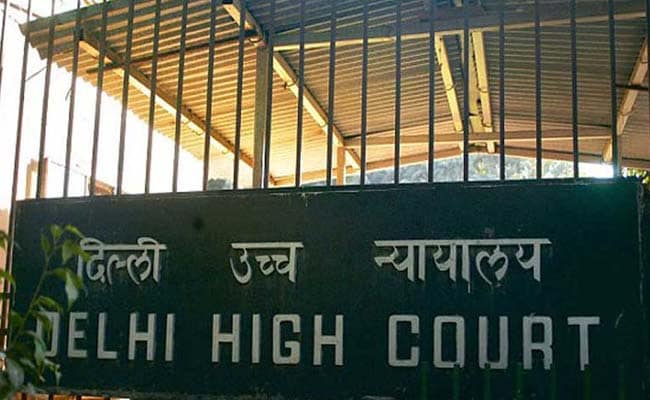
The central government on Thursday told the Delhi High Court that it was considering a "constructive approach" to the issue of criminalising marital rape and has sought suggestions from state governments, the Chief Justice of India, MPs and others on comprehensive amendments to the criminal law.
Justice Rajiv Shakdher, who is heading the bench dealing with a batch of petitions seeking criminalisation of marital rape, informed during the hearing that Solicitor General Tushar Mehta mentioned the matter before him when certain other parties and Justice C Hari Shankar, who forms part of the bench, were not present.
"The matter was mentioned in the morning by the learned SG and he was saying that the government was considering a constructive approach to the matter," said Justice Shakdher.
Central government lawyer Monika Arora told the bench that the Centre was undertaking a comprehensive task of amending the criminal law which includes section 375 (rape) of the IPC.
"We have invited suggestions from all Chief Ministers of all state governments...the Chief Justice of India, Chief Justice of all high courts...judicial academies, national law universities, the Bar Council of India, Bar council of all courts and members of both houses of Parliament regarding comprehensively amending the criminal laws," she said.
The court said that overhaul of the law would take "a lot of time" and asked the central government to state if it was dealing specifically with the issue of marital rape exception.
"If vis-a-vis (section) 375 you people (Centre) have some suggestions then we will consider that. Generally, this exercise will take a lot of time," said the court as it continued to hear the petitions.
In its additional affidavit filed by the Under Secretary in Ministry of Home Affairs, the Centre asserted that it is "already seized of the matter" and that the marital rape exception cannot be struck down only at the instance of the petitioners as the principles of natural justice required a "larger hearing of all stakeholders".
The petitioners are also at liberty to give their submissions/suggestions to the Ministry of Home Affairs, it stated.
Justice Shakdher, during the course of the submissions, orally observed that the exclusion of "certain circumstances" from the ambit of rape "because of inter-party relationship" is problematic and that the marital rape exception could be examined in the light of protection granted to sex workers in rape law.
The judge remarked that when the rape law grants no exemption in case of forced intercourse with a sex worker who chooses to withdraw consent at a belated stage, why should a wife be "less empowered".
"According to me, you (the amicus curiae) gave a good example of sex worker. If you were to look into circumstances, what better defence than to say that this is a person who is used to entertaining people...she should have also been in the exception...we have chosen not to do it. Our courts have gone as far as saying she can say no at any stage. Can a wife be put at a lower pedestal? Be lesser empowered in law?" he questioned.
Justice Shankar opined that the expectation of sex in the case of a marital relationship was not the same as in the instance of a sex worker.
Senior advocate Raj Shekhar Rao, who is appointed as an amicus curiae to assist the court, argued that husband and wife are "two equals before law" and there is no reason "why husband's desire to have sex trump the wife's desire not to".
The amicus said that the foundation of section 375 was the lack of consent and there was no reason to give lessor protection against non-consensual intercourse to a married woman.
He thus argued that the marital rape exception in law was arbitrary and violated article 14 and article 21 of the Constitution of India.
The amicus also said that striking down the exception would not result in the creation of a new offence and the concerns of interference in private marital space were unfounded.
The bench was hearing PILs filed by NGOs RIT Foundation, All India Democratic Women's Association, a man and a woman seeking striking down of the exception granted to husbands under the Indian rape law. Pleas have also been filed by some men's right organisations which are opposing the petitions seeking to quash the exception, saying there was no question of discrimination and the Parliament has retained the provision considering the overall view of India society.
The central government, in its earlier affidavit filed in the case, has said that marital rape cannot be made a criminal offence as it could become a phenomenon that may destabilise the institution of marriage and an easy tool for harassing the husbands.
The Delhi government has told the court that marital rape was already covered as a "crime of cruelty" under IPC.
The petitioner NGO has challenged the constitutionality of marital rape exception under section 375 IPC on the ground that it discriminated against married women who are sexually assaulted by their husbands.
The hearing in the case will continue on January 14.
Track Latest News Live on NDTV.com and get news updates from India and around the world

